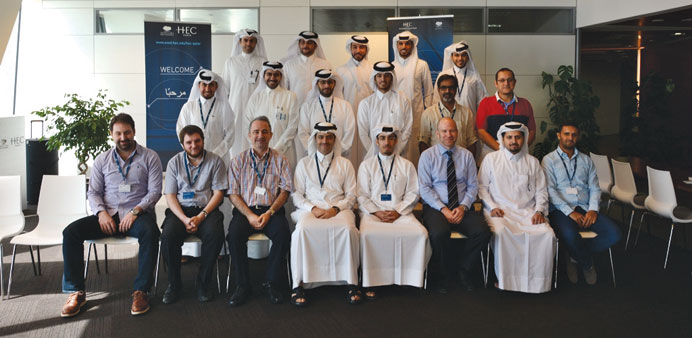HEC Paris has held an open-enrolment programme on negotiation skills and strategies for 40 participants from the public and private sectors representing healthcare, airlines, infrastructure works, broadcasting, real estate, family businesses and education.
The two-day programme was conducted by Professor Matthew Mulford, an affiliate professor at HEC Paris and an expert in negotiation analysis, effective business decision-making and leadership.
Aimed at improving the conceptual understanding of negotiations through the application of a practical framework and improved self-awareness, the programme was designed to build on the existing negotiation experiences of participants in order to improve their future
performance.
Each participant was given the opportunity to step back and think about their routine approaches to negotiations as well as
practise new approaches.
Among the topics discussed in the programme were key principles to employ when preparing for and conducting negotiations; the creation of value and increased deal efficiency through the use of integrative negotiation tactics; and strengths and weaknesses of individual negotiation styles (strategic, psychological and emotional).
There were also discussions on the challenges of intra- and inter-organisation negotiations; identification and removal of barriers to agreement, establishment of trust, conflict de-escalation and resolution; and identification of and defence from common persuasion and manipulation techniques.
“Sharp negotiation skills and strategies are key elements of every successful business transaction,” said Prof Laoucine Kerbache, dean and CEO of HEC Paris in Qatar. “In today’s highly globalised business and economic environment, business executives are faced with an array of factors that significantly affect the entire negotiation process. It is, therefore, important for them to be aware and equipped with various strategies and approaches when conducting such negotiations in order to achieve
desired results.”
Under a workshop format, the programme allowed maximum interaction between the participants and created an active learning environment, a statement noted. Each presentation of new material was supplemented by negotiation simulations, self-diagnostic tools or group work.
“One’s ability to perform well during negotiations is greatly influenced by a combination of natural ability, experience and formal training,” Professor Mulford explained. “Self-awareness and knowledge of negotiation styles can help managers discover how to capitalise on strengths while mitigating weaknesses. This will, accordingly, alter the quality of future negotiations.”

Participants of the programme.
